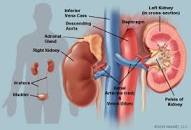
Recently Diagnosed or Relapsed? Stop Looking For a Miracle Cure, and Use Evidence-Based Therapies To Enhance Your Treatment and Prolong Your Remission
Multiple Myeloma an incurable disease, but I have spent the last 25 years in remission using a blend of conventional oncology and evidence-based nutrition, supplementation, and lifestyle therapies from peer-reviewed studies that your oncologist probably hasn't told you about.
Click the orange button to the right to learn more about what you can start doing today.
- You are here:
- Home »
- Blog »
- Multiple Myeloma »
- Myeloma Antibiotics Side Effects
Myeloma Antibiotics Side Effects

“All patients received >4 weeks of acyclovir antibiotics prophylaxis (400 mg twice daily), which was initiated prior to starting treatment with bortezomib and discontinued 4 weeks following bortezomib…”
Hi David – I hope you are well and happy holidays. I have a quick question – what is your position on continuing with acyclovir antibiotics when you are in remission and not doing treatment?
If there is no immunosuppression due to treatment and our labs are all good in terms of immune system, are our chances still higher of getting shingles? Do you take it? Thanks and blessings to you! Kathy
Hi Kathy-
- One answer to your question relies on the status of your immune function. If your white, red, etc. blood cells are in the normal range your risk of shingles should be average.
- Another possible answer to your question is that I think giving people antibiotics for months and months can be ;harmful to the patient. I can’t cite research but I just don’t like it. An extension of this idea is that if you are in remission and if your numbers are “all good” as you say, I think you should be giving your body a break, rehabbing it, building strength for the next round of chemo, etc.
- Finally, another issue comes from my personal experience. I contracted shingles about 3 months post ASCT. Yes they are painful, annoying, etc. But once I went on antibiotics my shingles resolved in about a week. Of course I was only 35 at the time so maybe the risk of shingles is more of an issue for the average MM patient.
- MM Survivor
- MM Cancer Coach
- Director PeopleBeatingCancer
Recommended Reading:
- Multiple Myeloma Symptom, Side Effect, COD- Kidney, Renal Insufficiency
- Kidney, Heart, Bone, etc. Co-Morbidities at Myeloma Diagnosis
- Multiple Myeloma- Black Seed Oil, TQ- Kill MM, Pro Bone, Kidney, Heart-
Acyclovir prophylaxis against varicella zoster virus reactivation in multiple myeloma patients treated with bortezomib-based therapies: a retrospective analysis of 100 patients
Background: Previous studies have indicated that, in patients with multiple myeloma (MM), bortezomib is associated with an increased incidence of herpes zoster, resulting from reactivation of latent varicella zoster virus (VZV).
Objective: Our objective was to determine whether increased risk of VZV reactivation could be abrogated by using prophylactic acyclovir.
All patients received >4 weeks of acyclovir prophylaxis (400 mg twice daily), which was initiated prior to starting treatment with bortezomib and discontinued 4 weeks following bortezomib.
Results: Median patient age was 62 years, 57% were male, and most (56%) had Durie-Salmon stage IIIA MM. None of the 100 MM patients receiving acyclovir prophylaxis developed herpes zoster during treatment with bortezomib, irrespective of patients receiving a wide variety of concomitant antimyeloma therapies and regardless of response to bortezomib-based therapy. One additional patient, found to be noncompliant with acyclovir therapy, experienced VZV reactivation, having received 3 cycles of bortezomib (3 weeks each cycle) in combination with cyclophosphamide and dexamethasone…
Conclusions: The increased risk of VZV reactivation observed in previous studies of bortezomib-based therapy was completely abrogated in this series of patients who received prophylaxis with acyclovir.
Risk of Acute Kidney Injury From Oral Acyclovir: A Population-Based Study
“Intravenous acyclovir-induced acute kidney injury (AKI) from drug crystallization in the renal tubules is described in case reports, review articles, and drug prescribing manuals. Similarly, AKI from oral acyclovir is described in case reports, but the risk in routine practice is unknown…
76,269 patients received acyclovir or valacyclovir and 84,646 received famciclovir. On average, patients were aged 76 [IQR, 71-81] years and prescription duration was 7 days. Acyclovir or valacyclovir use was not associated with a higher risk of hospital admission with AKI (209 [0.27%] events with acyclovir or valacyclovir vs 238 [0.28%] events with famciclovir [relative risk, 0.97; 95% CI, 0.81-1.17]). Results were consistent in adjusted analyses, in all subgroups, and in the subpopulation with laboratory measurements…
Diagnostic codes had high specificity but low sensitivity and underestimated the incidence of AKI. Only a limited number of patients (n = 2,729) had serum creatinine values available…”

